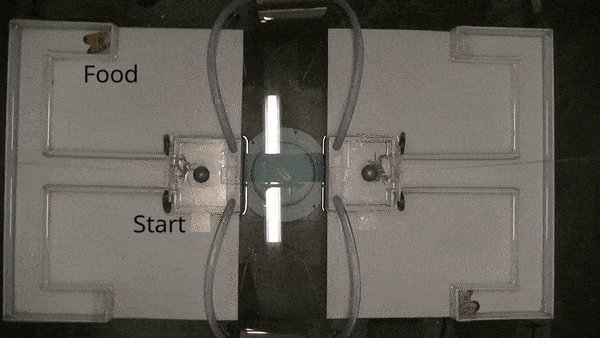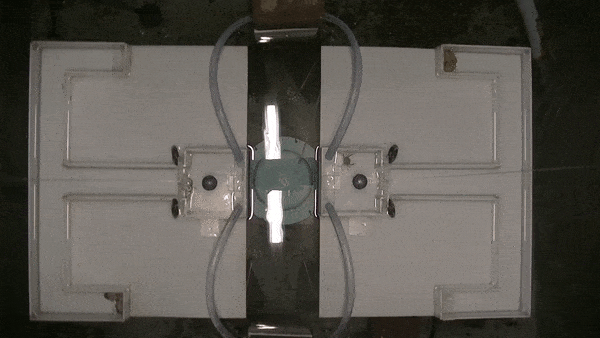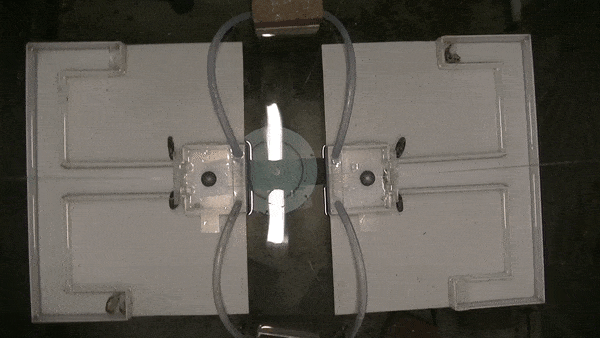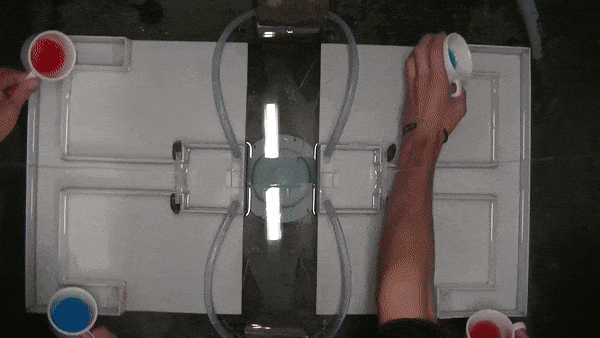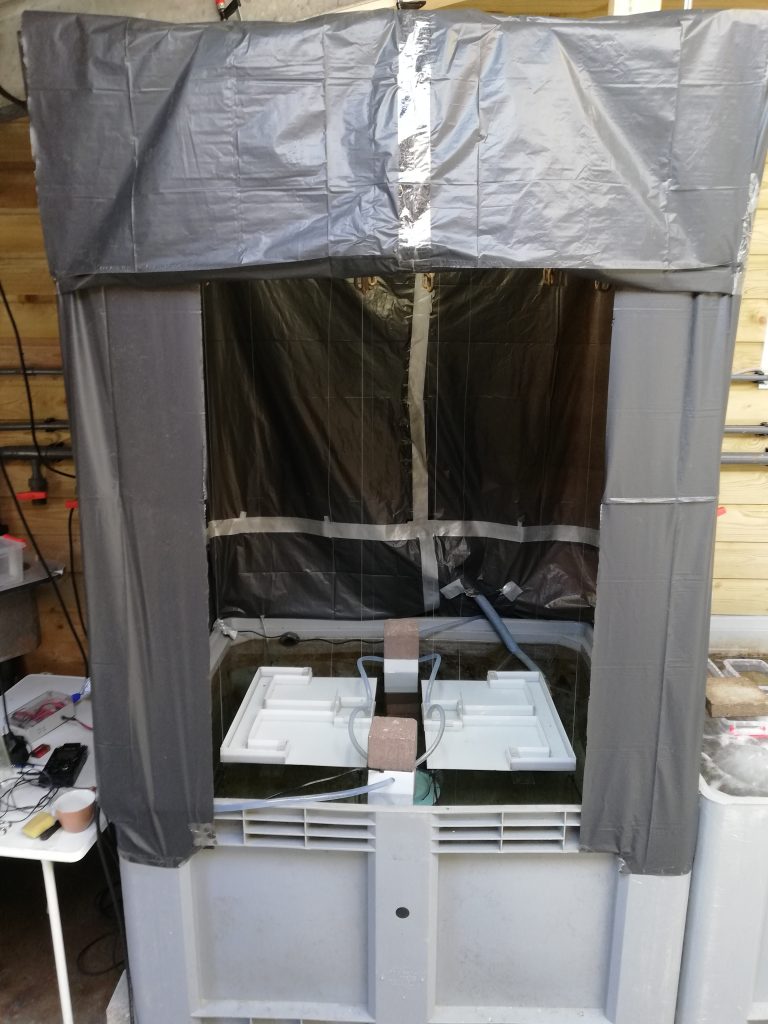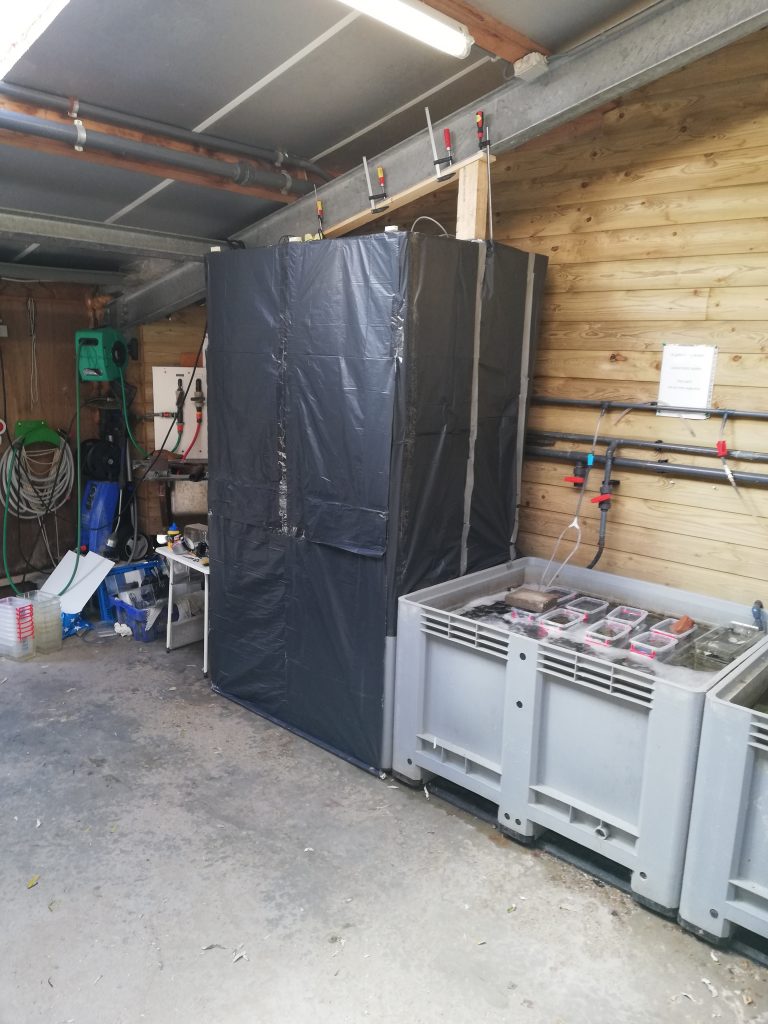We just published a new paper ‘No negative effects of boat sound playbacks on olfactory-mediated food finding behaviour of shore crabs in a T-maze‘ and it’s open access (HTML/PDF)! The paper is authored by Jostijn J. van Bemmelen, Hans Slabbekoorn and myself.
We are interested in the effects of man-made noise on marine life. Naturally, one would expect disturbance of behaviour that relies on biologically relevant sound. However, the processing of noise by an animal, may also interfere with the processing and interpretation of non-acoustic cues; for example, an olfactory cue (smell).
To study this, we allowed shore crabs to find food in a T-maze. We placed a food item in one of the ends of a T-maze. The crab could not see or hear the food, so had to find it based on smell. To facilitate this, we created a continuous waterflow from both ends to the starting area of the maze (as demonstrated in the color-test below). We tested two crabs at the same time and exposed about half of all of them to boat sound playbacks and the other half to ambient (background) sound playback. We scored how fast and efficient the crabs were in finding the food. Crabs that were exposed to boat sound were not slower or less efficient in finding the food, so we concluded that boat sound did not interfere with the processing and interpretation of smell in the current experiment.
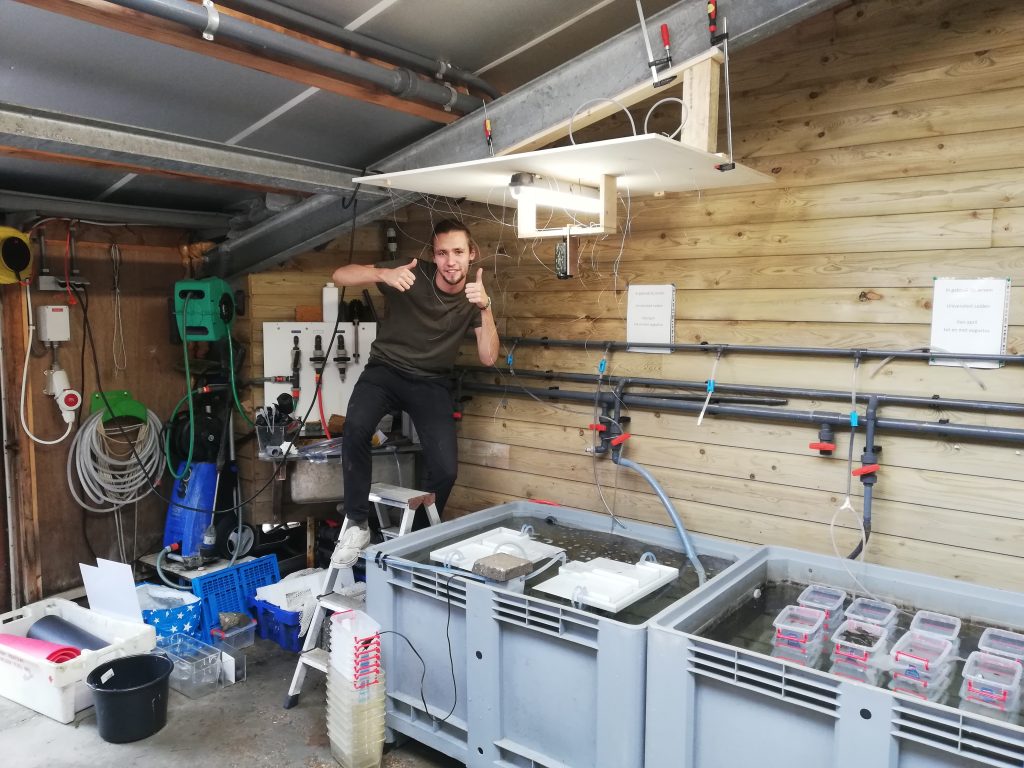
In the YouTube-playlist above, you find several example trials (at normal speed) and some additional explanation on how we conducted the trials.

